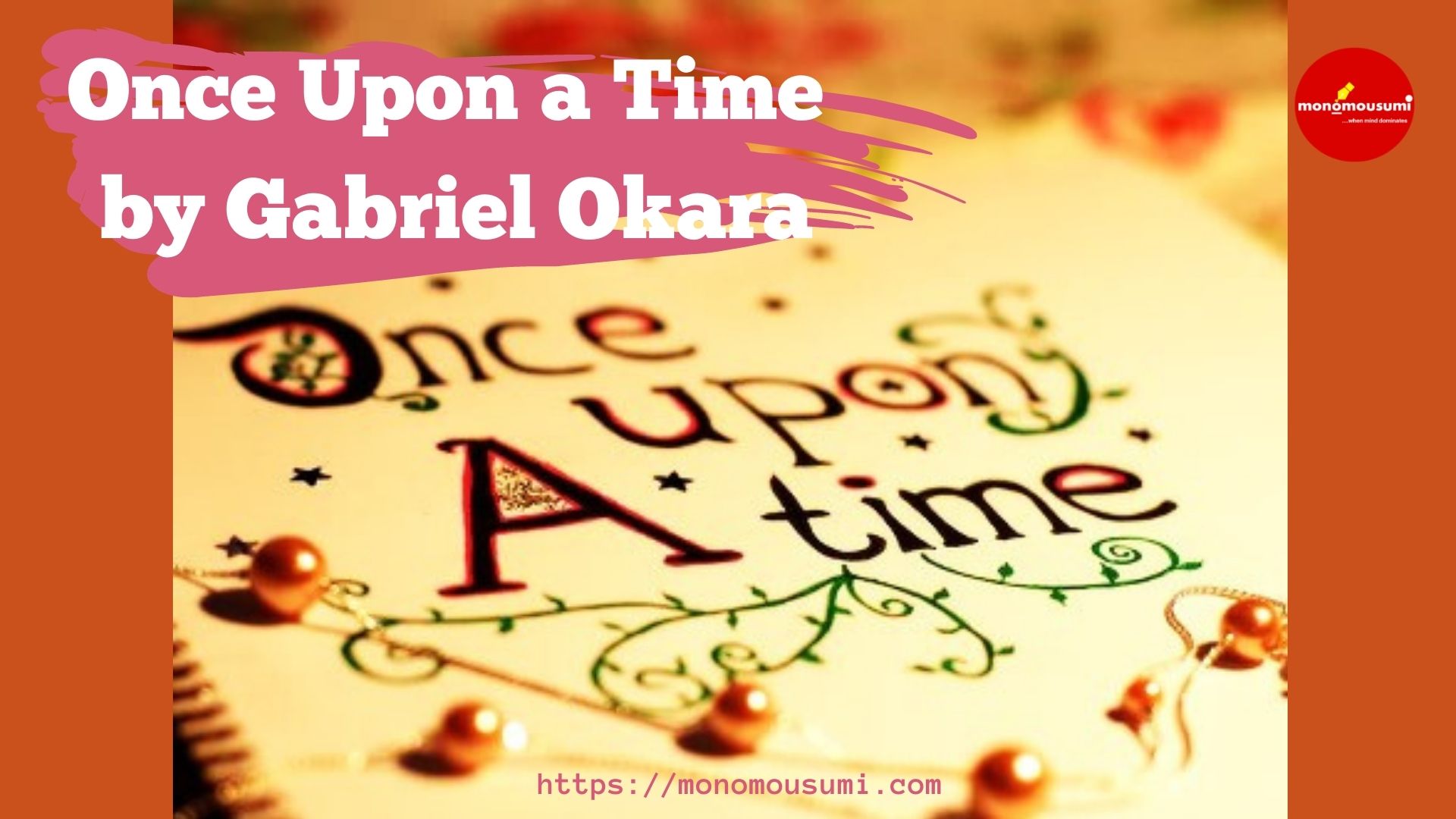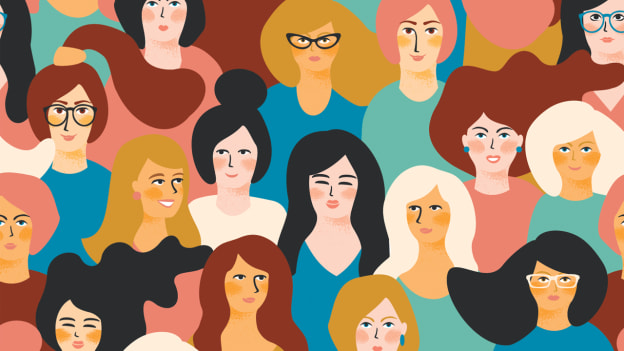
The poem, ‘Once Upon a Time’ is written by an African poet, Gabriel Okara. This monologue greatly elaborates the pain of the narrator who sees the destruction of good values, traditions, customs, and ethics in his own society. As well as this illustrates the changes, a father has seen in him throughout his life which have been influenced by the way society has changed.
This ambiguous title manifests the greatness of the formal African society. Because of the colonization, Africans lost their good values. At present, people around the world, think that Black-skinned Africans are very gloomy-hearted people of their complexion. But Okara says that the African nation is full of good values before British people invaded their country. He says that his great primitive society had many great qualities and also an endemic, powerful culture, traditions, and customs. But after the colonization, that great identity gets disappeared. Ultimately Okara says even Africans got independence forever from the British, but indirectly British people changed the minds of Africans by using their barbaric culture. Okara cannot bear this social transformation. He wants to expel those corrupted minds with his critical work. He juxtaposes the present and past society.
The speaker addresses his son and tells how people reacted when they met someone in the past. Ancient Africans laughed with their real human feelings. They laughed wholeheartedly and sincerely. They were very friendly and their wholesome smile illuminated the sensitivity of the whole world. It cured the pain and the anger of the world. Early Africans had strong bonds and relationships with others. Every moment they hastily came to help others. They understood the love, affection, compassion, and also the pain, poverty behind those beautiful smiles. They laughed even they were unknown to each other. But now people become proud and hypocritical. They never laugh with a real smile. When they laugh, they only flash their teeth in a false smile. They cannot understand others’ hearts. They doubt and look at the person whom they meet with their malicious eyes. When they speak something very happily and kindly, they privately resolve the opposite thing. They only perform a drama with their smile. So modern generation only has artificial, hostile qualities. Thus it manifests that sincerity and wholeheartedness are disappeared among the present people.
“Once upon a time, son,
They used to laugh with their hearts
And laugh with their eyes;
But now they only laugh with their teeth,
While their ice-block-cold eyes
Search behind my shadow.”
Now, Okara contrasts the greeting style of modern and past society. In the past, people welcomed others genuinely. They shook hands with the real feelings. They made many relationships with each other and fulfilled their duties and responsibilities with their whole heart. But that good nature and simplicity are gone now, and they shake hands mechanically without any feeling. In the modern era, every connection depends on financial or material gain. They only want to enjoy their rights but no effort to fulfill duties and responsibilities. Poet sarcastically represents when people are shaking hands, they search his empty pockets. This suggests that modern people want to make relationships based on financial matters. They build friendships by expecting something. They appreciate the wealth and the status of society. As well as empty is a symbol that presents the corrupted nature of present people. It further symbolizes that the Africans have not got anything valuable from western culture. They have lost what they had. So it is empty, nothing useful, or nothing to take out.
“……..They used to shake hands with their hearts;
But that’s gone, son.
Now they shake hands without hearts
While their left hands search
My empty pockets.”
As well as mechanical, stressful, busy lifestyle has become an obstacle to maintaining good relationships and continuing good values. Now people become very egoistic because of commercialization, complicated lifestyle, and also superstitious beliefs associated with western culture. So Africans destroy their own identity.
Early Africans are well known for their hospitality. Ancient people welcomed their visitors wholeheartedly and there were no mysterious feelings beyond their appearances. Today people accept and welcome their visitors with hospitality and friendliness, but these feelings remain for a short time and they do not tolerate visitors twice or thrice, they reject those giving false excuses. They cannot tolerate others’ views, as a result, they break down their relationships. So this suggests how hospitality and friendliness are destroyed among the people in the present society.
“….Feel at home’, ‘come again’,
They say, and when I come
Again and feel
At home, once, twice,
There will be no thrice-
For then I find doors shut on me.”
The narrator has got used to hiding his true feelings and showing a different expression that suits different occasions. He changes his expressions accordingly like one changes his dresses. He is confused that he has got corrupted by the influence of the present society. People only have deceptive stories beyond their beautiful appearances, like portraits. Every face has a fixed expression and it manifests that there is a duality in everyone’s life. The deception of present-day humans is very well displayed by his words.
The narrator further elaborates how the false and insincere living has affected him. This is a clear indication of how people are caught in the trends set in motion by society. The speaker pleads with his son to help him to get back to the innocence of childhood. The speaker says that he wants to get rid of this falsehood and needs to relearn how to laugh, and smile genuinely which means he wants to relearn how to live sincerely and truthfully. Now his laugh in the mirror reminds him of a snake’s bare fangs. This smile creates a horrible and unpleasant image and it indicates his disillusionment with the lifestyle that he is following now. He hopes that his son could help him as the small child is not affected by the false trends of modern contemporary society. But he has a fear about his son as his son is in an artificial world. The poem started with a pessimistic tone implied that the speaker is optimistic thinking that his son would support him to get back to the innocence of childhood.
“So show me, son,
How to laugh; show me how
I used to laugh and smile
Once upon a time when I was like you.”
While synchronizing the above facts it is suggested that in the speedy materialistic race, people have forgotten their grace. They are running behind the glitters. They want to go ahead with one another by pushing each other. They only have the art of cheat and deception. Really they cannot bear the progress of others. Okara laments about these barbaric changes. He laments about this social transformation. He wants to expel those changes. So it is proved that the poem, “Once Upon a Time” is a personal lamentation but it displays the universal problem that everyone is experienced.
By A.H.Sahanma Methyanie, Matara, Sri Lanka
Participate in Creative writing Contest & International Essay Contest and win fabulous prizes.
